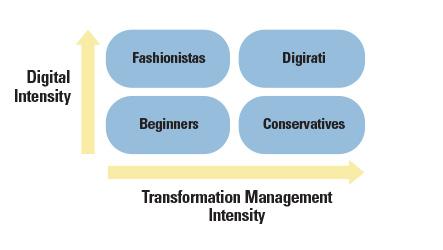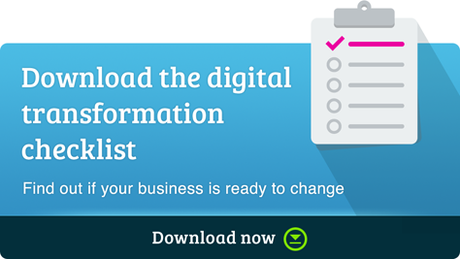Digital transformation is having a profound effect on business, from media and entertainment to publishing and marketing - even healthcare and education.
A natural question arises as a result of this progression, who’s next?
Financial service providers and banks look ripe for change, as customers demand to use their services more flexibly. But a quiet digital revolution is happening in your home that could signify the next big opportunity in digital disruption - utilities.

Inspired by recent presentations at Manchester Digital’s ‘Digital Disruption in Utilities’ event, from both Capgemini Vice President Martin Wells and Chris Jones from Blueleaf, we wanted to look at the opportunities and learnings for all sectors.
Digital Disruption in Utilities
While they may not sound like the sexiest of topics for discussion, it can’t be ignored that utilities are obviously massive business. The electricity network is almost the largest network in the UK, second only to the Internet - making the opportunity clear.
Digital disruption is affecting the utilities industry, e.g. the advent of smart meters, as brands from other sectors take their chance to disrupt the traditional ‘Big Six’ energy suppliers.
As with digital transformation in other sectors, the big companies are being forced to change as these new brands offer customers alternatives, not to mention digital innovation in the delivery of their service.
'The best companies at managing digital get the best financial results” - Capgemini
The Research
Recent research by Capgemini and MIT Sloan examined 400 large companies in a study lasting over two years, exposing a direct relationship between the digital maturity of businesses and their financial performances.
The research revealed that companies who were considered to be digitally mature outperformed competitors on a number of financial indicators.
Developing a digital maturity model, the report defined this maturity thus:
“Digital maturity combines two separate but related things. One is digital intensity, the level of investment in technology-enabled initiatives meant to change how the company operates. The other is transformation management intensity, the level of investment in the leadership capabilities needed to create digital transformation within an organisation.”
This model then characterised businesses into four levels, based on these combined factors:

The lower left quadrant of the matrix hosts ‘Digital Conservatives’ – ‘businesses that understand the need for a strong unifying vision as well as for governance and corporate culture to ensure investments are managed well. However, they are typically skeptical of the value of new digital trends, sometimes to their detriment. Though aiming to spend wisely, their careful approach may cause them to miss valuable opportunities upon which their more stylish competitors will pounce’.
Read the full report here.
“Utilities must become digital or they will cease to exist” - Martin Wells, Capgemini VPThe Digital Transformation Opportunity
The risk here is clear – but so too are the opportunities, and while the bigger utility service providers are adapting digital into customer service and delivery, for example British Gas is now doing 70% of its transactions online, as opposed to just 10% ten years ago.
Chris Jones, design director at digital agency Blueleaf states that energy is ripe for disruption, notes that the negative publicity around the pricing structures and continuing grumbles around customer service are driving brands to challenge the Big Six.
Two examples of this disruption in play include:
- OVO energy - aiming to become the UK's most trusted supplier, not cheapest or biggest.
- Co-op Energy – focusing on ethics and customer relationships.
A clear correlation emerges here – businesses that place customer relationships and trust at their core can challenge established industry giants.
Chris outlined some key actions for utility businesses that want to successfully embed digital:
- Comparison is king.
- Brand matters.
- Focus on the consumer.
- Focus on personas and the digital customer journey.
- Retention, not just acquisition, should be a focus.
The Lesson for Everyone – Including You
We think what’s clear here is that not only is there a huge opportunity for young businesses to disrupt the energy market and take on the big boys, but that digital transformation has key causes and identifiers in any industry:
- Rapid advancements in technology.
- Changes in customer behavior as customers now want to interact in a seamless digital experience.
Whether you are a national or global utility business, or an SME with a local market the principles of disruption remain the same – as do the necessary transformative steps.
Understanding your customer, delivering a flawless digital experience and embedding new technologies are key to not only digital success, but the future of your business.


